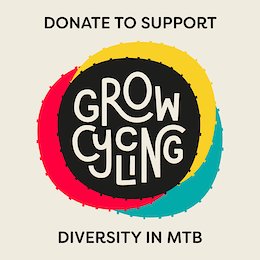Dario DiGiulio
Today
 First Look: Vorsprung's New Tellum Coil Shock
First Look: Vorsprung's New Tellum Coil Shock
The Tellum is the first standalone product from the Canadian suspension manufacturer.
Pinkbike Originals
Today
 Video: Carbon Chainrings & BMX Inspired Enduro Bikes from Sea Otter
Video: Carbon Chainrings & BMX Inspired Enduro Bikes from Sea Otter
Join Mike Kazimer and Dario DiGiulio for a run down of the newest tech from the 2024 Sea Otter Classic.
Dario DiGiulio
Today
 Madrone Cycles' SRAM Eagle Repair Kits & Prototype Derailleur
Madrone Cycles' SRAM Eagle Repair Kits & Prototype Derailleur
Featuring some details we haven't yet seen on any existing 12-speed systems.
Sarah Moore
Today
 U23 XCC Results from the Araxá XC World Cup 2024
U23 XCC Results from the Araxá XC World Cup 2024
The under 23 racers are back between the tape for the second round of the 2024 World Cup series
Sarah Moore
Today
 The 2024 Lifetime Grand Prix Kicks Off with the Fuego XL 100km Today at the Sea Otter Classic
The 2024 Lifetime Grand Prix Kicks Off with the Fuego XL 100km Today at the Sea Otter Classic
The Life Time Grand Prix is now in its third year and will see 60 athletes competing, with the winners of the men's and women's overalls taking $30,000 each.
Pinkbike Staff
Mar 18, 2024
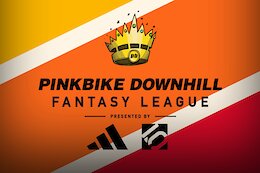 Pinkbike's DH Fantasy League: Get Your Team On The Line - Fort William is in TWO WEEKS!
Pinkbike's DH Fantasy League: Get Your Team On The Line - Fort William is in TWO WEEKS!
Now with dynamic rider pricing, this year's fantasy league will be more interesting than ever, and there are some great prizes up for grabs too.
Sarah Moore
Today
 First Look: Pinarello Renews Focus on MTB with Dogma XC & XC Now Available in FS & HT
First Look: Pinarello Renews Focus on MTB with Dogma XC & XC Now Available in FS & HT
No guarantees that riding the same bike as Tom Pidcock and Pauline Ferrand-Prévot will improve your race results.
Mike Kazimer
Today
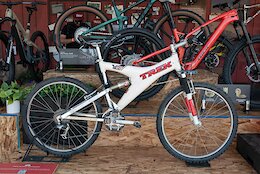 Randoms Round 1 - Sea Otter 2024
Randoms Round 1 - Sea Otter 2024
The first batch of assorted new products on display in Monterey, California.
Sarah Moore
Today
 Report Suggests Police Were Called to Scott Office After Youngone Reps Arrived with Armed Security
Report Suggests Police Were Called to Scott Office After Youngone Reps Arrived with Armed Security
This story gets more bizarre every day.
Ed Spratt
Today
 Video: Practice Footage from the Araxá XC World Cup 2024
Video: Practice Footage from the Araxá XC World Cup 2024
Riders get up to speed on an incredible course for round two of the 2024 World Cup series.
Dario DiGiulio
Today
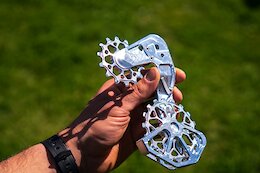 Transmission Cage Upgrades from Kogel, Ceramicspeed, and Cascade Components
Transmission Cage Upgrades from Kogel, Ceramicspeed, and Cascade Components
Whether you're a believer or not, they're certainly an impressive thing to look at.
Mike Kazimer
Today
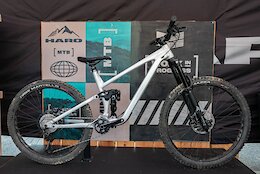 Haro Shows Off New Aluminum Trail & Enduro Bikes
Haro Shows Off New Aluminum Trail & Enduro Bikes
The 140mm Daley and 160mm Greer will be available later this year.
Raphael Auclair
Today
 Video: Big Jumps & Lots of Technical Sections - A First Look at the Brand New XC World Cup Course in Araxá
Video: Big Jumps & Lots of Technical Sections - A First Look at the Brand New XC World Cup Course in Araxá
A lap on the course with the Pivot Cycles - OTE team.
Sarah Moore
Today
 Results: Cody Kelly & Rae Morrison Win 2024 Sea Otter Enduro
Results: Cody Kelly & Rae Morrison Win 2024 Sea Otter Enduro
Racing kicks off in Monterey.
Sarah Moore
Apr 18, 2024
 Pole Bicycles Hopes to Inspire a Potential Investor By Sharing Final Video
Pole Bicycles Hopes to Inspire a Potential Investor By Sharing Final Video
We hope this isn't the last we see of the Finnish brand.
Pinkbike Originals
Apr 18, 2024
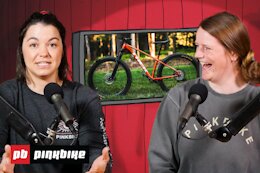 Video: Return To World Cup Racing & Bikes For A Bargain | Pinkbike Weekly Show Ep. 22
Video: Return To World Cup Racing & Bikes For A Bargain | Pinkbike Weekly Show Ep. 22
It's all happening now with the return of World Cup Cross-Country racing and trade shows.
Mike Kazimer
Apr 18, 2024
 Praxis' New Flat Pedals, Stem, & Carbon Bottle Cage
Praxis' New Flat Pedals, Stem, & Carbon Bottle Cage
The Podium flat pedals are back, this time with steel pins and a wider platform.
COMMENCAL BIKES & SKIS
Apr 17, 2024
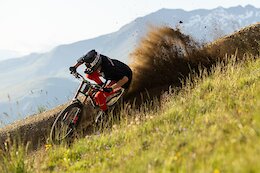 Video: Hugo Frixtalon & Brendan Howey With Massive Style in Les 2 Alpes
Video: Hugo Frixtalon & Brendan Howey With Massive Style in Les 2 Alpes
An exceptionally stylish duo.
Dario DiGiulio
Apr 18, 2024
 First Ride: Michelin's Aggressive New Wild Enduro Tires
First Ride: Michelin's Aggressive New Wild Enduro Tires
Michelin has fully refreshed their DH and enduro tire lineup.
Rémy Métailler
Today
 Video: Remy Metailler & Alex Chapellier Tackle Gnarly Features & Talk About Risk Management
Video: Remy Metailler & Alex Chapellier Tackle Gnarly Features & Talk About Risk Management
The two chat about technique but also how to best approach these type of rides where things can go really wrong really quick.
Kali Protectives
Today
 Kali Protectives Announces New Full Face Helmets
Kali Protectives Announces New Full Face Helmets
Kali Protectives launches three new full-face helmets.
Dario DiGiulio
Apr 18, 2024
 Review: 6 Months with the New DT Swiss 240 DEG Hubs
Review: 6 Months with the New DT Swiss 240 DEG Hubs
4 degrees of engagement and all the DT durability you'd expect.
Mike Kazimer
Apr 18, 2024
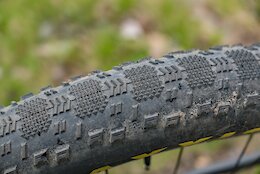 First Ride: Maxxis Team Spec Aspen ST Tire
First Ride: Maxxis Team Spec Aspen ST Tire
The 170 TPI Aspen ST isn't just for World Cup cross-country racers anymore.
Mike Kazimer
Apr 18, 2024
 Vittoria Releases New Peyote & Mezcal XC Race Tires
Vittoria Releases New Peyote & Mezcal XC Race Tires
A new tread pattern and an updated, single compound XC Race construction.
Outside Online
Apr 17, 2024
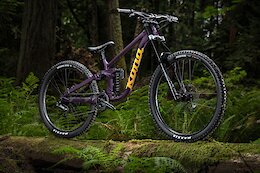
A source said employees have been told to expect a company "town hall" meeting on Thursday.
Sarah Moore
Apr 17, 2024
 Pole Bicycles Has Filed for Bankruptcy
Pole Bicycles Has Filed for Bankruptcy
Pole Bicycles Company has appeared on a Finnish insolvency registry today.
Industry Nine
Apr 17, 2024
 Industry Nine Introduces SOLiX M Hubs & Wheelsets
Industry Nine Introduces SOLiX M Hubs & Wheelsets
Industry Nine has rolled out a new line of XC and trail wheels.
Christina Chappetta
Apr 17, 2024
 Video: Why You Should Give A SH!T About Bike Festivals Like Sea Otter
Video: Why You Should Give A SH!T About Bike Festivals Like Sea Otter
With roots dating back to 1991, the Sea Otter Classic is one of the biggest biking events of the year.
Robert Smith
Apr 18, 2024
 Video: Trackside Carnage from the British Downhill National Series Round 1
Video: Trackside Carnage from the British Downhill National Series Round 1
A new addition to the Rheola race track proved challenging for most riders.
Neko Mulally
Apr 17, 2024
 Video: Neko Mulally On Frameworks' First Bonded Downhill Frame
Video: Neko Mulally On Frameworks' First Bonded Downhill Frame
Frameworks' first attempt at a bonded lug and tub frame.
Archive Navigator
2024 Advertiser List
Brands
Bikes
- Trek
- Specialized
- Devinci
- Rocky Mountain
- Giant Bikes
- Scott
- Kona
- Norco
- Commencal
- NS Bikes
- Santa Cruz
- Yeti
- YT Industries
- Polygon Bikes
- Cube
- Radon Bikes
- Marin
- Guerrilla Gravity
- RSD Bikes
- Propain Bikes
- DMR Bikes
- Canyon
- PRIME Bicycles
- Pivot Cycles
Components
- SRAM
- Shimano
- Race Face
- Industry Nine
- SDG
- Deity
- Hunt Wheels
- One Up Components
- KS
- Rotor Bike Components
- Stan’s NoTubes
- Reverse Components
- RideWrap
- PROLOGO
- Yoshimura Cycling
- TRP Cycling
- Galfer USA
- Bikeyoke
- e*thirteen
- Geo Handguards
Suspension
Tires
Accessories
Coaching and Education
Online Retailers
Resorts/Riding
- Trestle Bike Park
- Bike Parks BC
- Fernie
- Crested Butte
- Big White
- Saalbach Hinterglemm
- Whitefish Mountain Resort
- Visit Tucson
- Monument Trails
- Mountain Bike Park City


